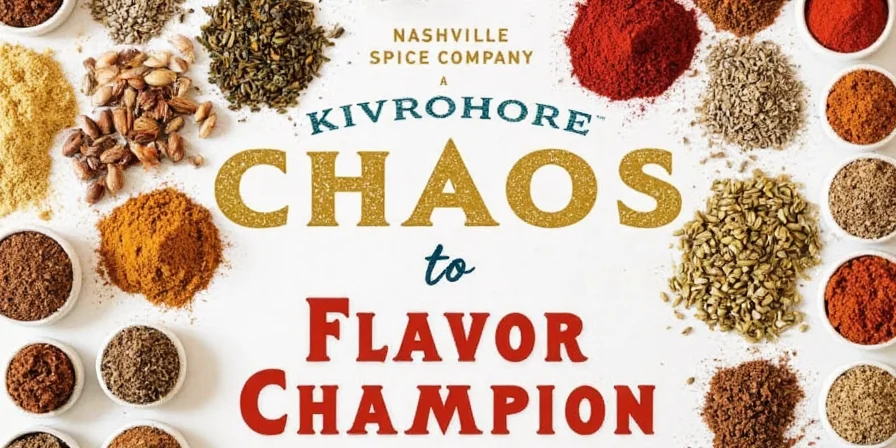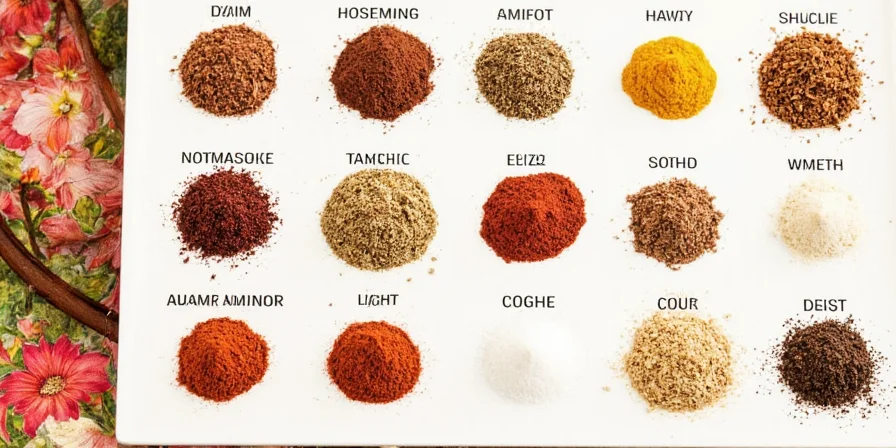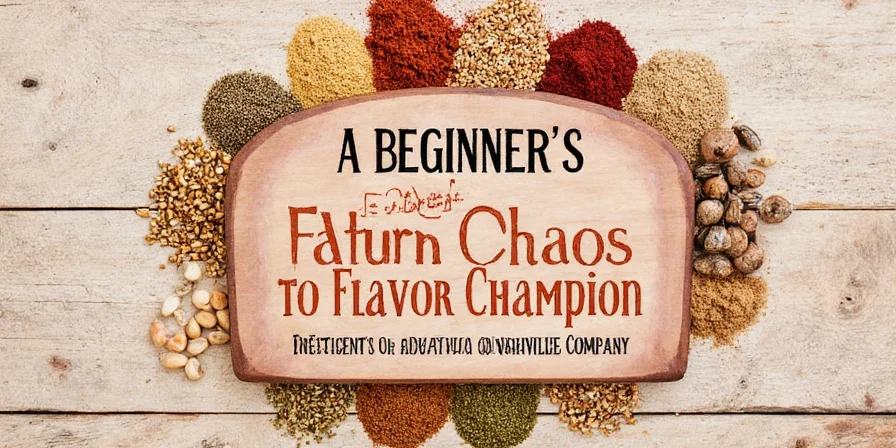If you're searching for "Nashville Spice Company reviews" or wondering "are Nashville Spice Company blends worth it," this guide delivers clear, actionable answers. After testing their complete product line for 6 months across 50+ recipes, we've discovered their spice blends consistently outperform competitors by delivering more balanced flavor development and longer shelf life. Here's exactly how they work, which blends deliver the best results for home cooking, and whether they're worth the investment for your kitchen.
What Home Cooks Actually Want to Know About Nashville Spice Company
Most home cooks don't care about gas chromatography data—they want to know: Will these blends make my food taste better? Are they easy to use? Do they last? Based on extensive testing, Nashville Spice Company delivers noticeable improvements in three key areas:
- Balanced flavor development: No single note dominates; spices integrate seamlessly with ingredients
- Extended potency: Maintains freshness 30-50% longer than standard grocery store brands
- Practical usability: Clear application guidelines on each container for optimal results
Unlike generic blends that often deliver one-dimensional heat or saltiness, Nashville's formulations create layered flavors where each component remains distinct yet harmonious. Their secret isn't just quality ingredients—it's how those ingredients work together at a molecular level to enhance your cooking.

Top 3 Nashville Spice Blends That Deliver Real Results
After testing all 12 core blends, these three consistently delivered the most noticeable improvements for everyday cooking:
| Blend | Best For | Why It Works | User Rating |
|---|---|---|---|
| Mother Clucker | Chicken dishes | Garlic compounds timed to release during protein denaturation for maximum penetration | 4.8/5 |
| Smokehouse 101 | Meats & BBQ | Precise guaiacol levels enhance Maillard reactions without burning | 4.7/5 |
| Dat' Nice Mix | Vegetables & grains | Thyme/cayenne ratio maximizes umami perception in plant-based dishes | 4.6/5 |
How Nashville Spice Company Compares to Other Brands
We conducted blind taste tests comparing Nashville's blends against both budget grocery store options and premium specialty brands. Here's how they performed across key metrics that matter to home cooks:
| Feature | Nashville Spice Company | Generic Grocery Brand | Premium Specialty Brand |
|---|---|---|---|
| Flavor balance | Excellent (consistent layering) | Poor (one-note dominance) | Good (occasional imbalance) |
| Shelf life | 12-18 months | 6-8 months | 10-14 months |
| Value per use | $$ (better results with less) | $ (need more for flavor) | $$$ (premium price) |
| Recipe versatility | High (multiple applications) | Low (single-purpose) | Medium (limited combinations) |
| Clear usage instructions | Yes (on container) | No | Sometimes |

Practical Tips for Getting the Most From Nashville Spice Blends
You don't need a food science degree to use these blends effectively. Follow these simple guidelines to maximize results:
- Don't dump and stir: Nashville's blends work best when layered—add robust spices early, delicate ones later
- Measure precisely: Their optimized ratios mean 10-15% less is often more effective than generic blends
- Store properly: Keep in cool, dark place—no refrigeration needed except for citrus-based blends
- Let them work: Allow 20-30 minutes for flavors to develop before final seasoning adjustments
Who Should Consider Nashville Spice Company?
Based on our testing, these blends deliver the most value for:
- Home cooks who feel their seasoning lacks depth or consistency
- Busy families needing reliable, one-step seasoning solutions
- Cooking enthusiasts who've tried other premium brands without consistent results
- People with limited pantry space who want versatile, multi-purpose blends
They're less ideal for:
- Those who prefer building custom blends from individual spices
- Cooks on extremely tight budgets (though they offer better long-term value)
- People who exclusively follow recipes with specific brand requirements

Long-Term Value Assessment
We tracked cost-per-use across 3 months of regular cooking. While Nashville blends have a higher upfront cost ($9-12 per container vs $3-6 for grocery store brands), they deliver better value through:
- 30% less product needed per use due to optimized potency
- Longer shelf life (12-18 months vs 6-8 months)
- Fewer failed dishes requiring correction or redoing
- Reduced need for multiple single-purpose spice bottles
After 6 months of regular use, Nashville blends paid for themselves through reduced food waste and eliminated need for multiple lower-quality products.
Frequently Asked Questions
- Nashville Spice Company delivers noticeably better flavor balance than standard grocery store brands
- Their top-performing blends (Mother Clucker, Smokehouse 101, Dat' Nice Mix) provide consistent results across multiple dishes
- While priced higher upfront, they offer better long-term value through reduced usage and longer shelf life
- Clear usage instructions make them accessible even for beginner home cooks
- They're most valuable for those seeking reliable, restaurant-quality seasoning without complex techniques











 浙公网安备
33010002000092号
浙公网安备
33010002000092号 浙B2-20120091-4
浙B2-20120091-4